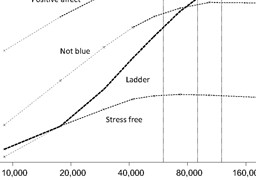ьэМ ьЄьПЈьД ьАъЕЌэ тыъГМ ьАыЙь ъДъГт
ыъГМ ьАыЙь ъДъГы ыЌДььМъЙ? ьД ьЇыЌИь ыЕэъИА ьэД ьэМ ыЙьІыьЄ ьЄьПЈ(Wharton School of Business)ь ьАъЕЌьыЄь 33,000ыЊ
ьДьь ьАИъАьыЁыЖэА 170ыЇ ыАьДэА эЌьИэИыЅМ ььЇэьЌ ьМььэьь ьь ь ъАь ь ыэ тьъАт ьЄы
ьЗь ь ъГЕэыЄ. ыЏИъЕъЕыІНъГМэьэыГД(Proceeding of the National Academy of Sciences)ь ыАэы ьД ьАъЕЌы ыьД эыГЕь ьэЅь ыЏИьЙыЄы ъВь ьЄь ыЁ эьИэыЄ. ьДы ьДь ь ьД ьЃМь ь ыэ ьэЅы Ѕ ьы ьАъЕЌьы ыЄыЅИ ъВАъГМьДыЄ. ьДь ьАъЕЌы ьД ьЃМь ь ыэД 75,000ыЌыЌь ъЕээъГ , ьД ьДьь ыь ъАьИь ьАыЙь эА ъАьЙъА ьыЄъГ эыЄ.
ыъГМ эыГЕь ьАъВАь ыэ ыыЖыЖь ьДь ьАъЕЌы ьЖь ыэ ь ыАь ьИ ыЇьЁБыыЅМ эЌэЈэы эъАь ьАыЙь ьДь ь ыЇьЗыЄ. ъЗИыЌы ьэМ ьЄьПЈь ьАъЕЌы тэъАь тъГМ тъВНэь т ьЈыЙь ыЊЈы ьИЁь эы ъВь ыЊЉэыЅМ ыыЄ. эьь ъВНьАы ъЗИ ьъАь ьЌыыЄьД ьДыЛъВ ыыМыьЇь ыэ ъВь ыэыИыЄ.
ьэМьЄьПЈьД ыЇы тэыГЕ ьЖь (Track Your Happiness)тьДыМы ьБь эЕэД ьЌыыЄь ыЇЄьМ ыЊ ыВьЉ ьь ь ъАь ь ьЄыЊ
эьМыЉА ьВДэЌьИ ьъАь ьАИъАьыГыЁ ыЌДььыЁ ьЇь ыьыЄ. тъВНээт ьАыЙь ьИЁь эъИА ьэД ьВДэЌьИэ ыыЇыЄ ьБь тьЇъИ ъИАыЖьД ьДыЛьЕыъЙ?тыМы ьЇыЌИь ыьЁыЄ. 'ыЇЄьА ыьЈ'ьь 'ыЇЄьА ьЂь'ъЙьЇь ьВыыЁ ьД ъГМь ьь ьАИъАьыЄь ть ыАь ьМыЁ ъЗэь ьЖь ьМыЇы ыЇьЁБэьыъЙ?тыМы ьЇыЌИь ь ьДы э ыВ ьДь ьыЕэыЄ. 'ь э ъЗИы ьЇ ьыЄ'ьь 'ыЇЄьА ъЗИы ыЄ'ь ьВыыЁы тэъАь т ьАыЙь ьИЁь эыЄ.
тъВНэь т ьАыЙь 2ьАЈ ьИЁь ьы 12ъАь эЙь ъАь , ьІ 5ъАь ъИь ь ъАь (ьь ъА, ьЂь, ьъА, ъДьЌ, ьыьЄыЌь)ъГМ 7ъАь ыЖь ь ьИ ъАь (ыы Єь, эыЈ, ыьЈ, ьЇыЃЈэЈ, ьЌэ, ьЄэИы ьЄ, ыЖы
И)ь эЌэЈэыЄ. тэъАь т ьАыЙь 2ьАЈ ьИЁь ьы ьИэ
ьДэЌ ьыВ ьД(intake survey)ьь ььЇы ыЄыЅИ ы ъАьЇ ьЖь ыЇьЁБы ьИЁь ьД эЌэЈыьыЄ.
ыЏИъЕьь 18ьИьь 65ьИ ьЌьДь ьД 33,391ыЊ
ьД 1,725,994ъБДь ъВНэь ьАыЙьД ыГДъГ ыьыЄ. ъЗИыА ыЄь ьэМьЄьПЈ ьАъЕЌьь ъА ъАьИь эъЗ ьАыЙ ььЄь ъГьАэъГ ьыъГМь ъДъГыЅМ ыЖьэыЄ.
ьД ьАъЕЌь ьЃМь ыЊЉэы ьЌыыЄьД ы ыЇь ыь ыВьыЁ ьАыЙьД ьІъАэьЇыЇ ьАъА ъАъГ ьыьД $75,000ь ыыЌэыЉД ъВНээ ьАыЙьД ь ьВДыыЄы 2010ы
ьАъЕЌ ьАъЕЌь ъВАъГМыЅМ эьИэы ъВьДьыЄ. ъЗИыЌы ъДыВьэ ьы ььЄь ьЁАьЌэь ы ыЊЈы ээь ьАыЙьД ьыъГМ эЈъЛ ъГь ьІъАэыЄы ъВьД ыАъВЌыьыЄ. ьАъЕЌьыЄь ыьД ы ьДь ьЄьэьЇ ьыЄы ъГЁь ьь ьДыЄ ъМЌььДы ыГъГЁь ы ыГДьЇ ыЊЛэыЄ. ыь эыГЕь ьыъГМ эЈъЛ ъГь ьІъАэы ъВьМыЁ ыэыЌыЄ.
ьЌъИАьь тьыть ыь ьы(logarithmic income)ьМыЁ ьы ЄьЇ ъАы
ь ыэыИыЄ. 1ыЌыЌъА ъА ьЌыьъВ ыьМэъВ ьЄьэъИАыГДыЄы, 1ыЌыЌы ьЌыьД ы ыЇьД ыВьыЁ ы ьЄьэДьЇъИА ььэыЄы ъВ. ьАыІЌы ъАъА $25,000ь $50,000ыЅМ ыВы ы ьЌыьД ъАъА $100,000ь $200,000ыЅМ ыВы ы ьЌыъГМ ыьМэ ьАыЙ ьАЈьДыЅМ ъАьЇ ъВьМыЁ ььэыЄ. ьІ, ьыь ыЙыЁь ьАЈьДы ыЊЈы ьЌыьъВ ыьМэъВ ьЄьэыЄ.
ьДыВ ьАъЕЌы ьыъГМ эыГЕь ъДъГь ыэ ы ъЙь ьДэДыЅМ ь ъГЕэъГ ьыЄ. ъГ ьыьы ыЖыЖь ьМыЁ ьЖь ыэ эЕь ы ЅьД ыьь Иь ы эыГЕэыЄ. ыьД ыЇььыЁ ьЖь ьДыЛъВ ьДььМ э ьЇ ь эь эьД ыьДьЇыЄ. ьАыІЌы ьДыЅМ ь ьМыГььы ыГМ ь ьыЄ. ъИьЌ ьэьыЄь ьЄьЇ ьДэ ыЙыЁ ъЗИыЄьД ьЋьДэы ьЇь
ьДыыМы ьДьыЈъИА ьэД ьВЋ ыВьЇИыЁ ъАыЅэ ьЇь
ь ьЗЈэДьМ э эьъА ььь ъВьДыЄ. ъЗИыЌы ьЌь ь ьЌь ъА ьы ьЌыыЄь ы ь эЉэ ьЇь
ь ъИАыЄыІД ь ьыЄ. эЌъГ ьь ъВАь ь ъБИьГ, ы ыЇь ыь ъАы ъВь ьЌыьъВ ы ыЇь ь эъЖъГМ ы эА ььЈьБь ь ъГЕэыЄ.
ъВыЄъА ыьД эыГЕь ьЂььЇ ыЊЈыЅДьЇыЇ, ьАъЕЌы ыъГМ ьБъГЕь ыьМьэы ьЌыыЄьД ъЗИы ьЇ ьь ьЌыыЄыГДыЄ ы эыГЕэыЄы ъВьД ыАъВЌыьыЄ. ыыЖьД ы ыЇь ыь ыВы ьЌыыЄьД ы ьЄы ьъА ьМэъГ ьъАь ыэ ьыАь ы ыЇьД ыыыЄы ъВы ыАъВЌыьыЄ.
ьД ьАъЕЌы ьыьД ьДь ь эъАы ьъГъА ьДььМыЁ ьЄьэыЄы ъВь ыГДьЌьЄыЄ. эьЇыЇ ьЌыыЄь ыь ы ьЇьЄэДьМ эыЄы ьъАь эДьы ь ыыЄ. ьІ, ьыьД эДьыЁ ы эыГЕэьЇыЇ, ьД ьАъЕЌы ьЄь ыЁ ьыьД эыГЕь ъВАь эы ььЃМ ьь ьььМ ыПьь ыГДьЌьЄ ъВьДыЄ. ьДьЈы ьЌыыЄь ьь ь ьЖьД ьМыЇы ь ыьъАыьЇ ьъАэ ы ыь ьЇыьЙъВ ъАьЁАэ ъВьДыЄ. ъЗИы ыЄ. ыь ьЄьэ ььыЄ. эьЇыЇ ьЌыыЄьД ь ьДэ ь ьы ыЇь ьь ьЄ эыьМ ыПьДыЄ.
Reference:
PROCEEDINGS OF THE NATIONAL ACADEMY OF SCIENCES, September 21, 2010, тHigh Income Improves Evaluation of Life but Not Emotional Well-Being,т by Daniel Kahneman and Angus Deaton. © 2021 National Academy of Sciences. All rights reserved.
To view or purchase this article, please visit:
Whatтs the relationship between money and well-being? To answer this question, researchers at the Wharton School of Business collected 1.7 million data points from more than 33,000 participants who provided тin-the-momentт snapshots of their feelings during daily life. This research published in the Proceedings of the National Academy of Sciences, confirms that money does influence happiness and, contrary to previous influential research on the subject suggesting that this plateaus above $75,000, there was no dollar value at which it stopped mattering to an individualтs well-being.
Most previous studies of the money-happiness link focused on evaluative well- being, which encompasses overall satisfaction with life. But this study aimed to assess both тevaluativeт and тexperiencedт well-being, the latter indicating how people feel in the moment.
Through an app created by Wharton, called Track Your Happiness, people described their feelings a few times each day, with check-in times randomized per participant. To measure тexperiencedт well-being, each check-in asked them, тHow do you feel right now?т on a scale ranging from тvery badт to тvery good.т At least once during the process, participants also answered the question, тOverall, how satisfied are you with your life?т on a scale of тnot at allт to тextremely.т This part of the assessment measured тevaluativeт well-being.
Secondary measures of experienced well-being included 12 specific feelings, five positive one (which were confident, good, inspired, interested, and proud) and seven negative one (which were afraid, angry, bad, bored, sad, stressed, and upset). Secondary measures of evaluative well- being included two other measures of life satisfaction collected on an intake survey.
In total, 33,391 employed, 18-to-65-year-olds in the United States provided 1,725,994 reports of experienced well- being. The Wharton researchers then calculated the average level of well-being for each person and analyzed its relationship to their income.
A major objective was to confirm the findings of a 2010 research study that suggested that as people earn more money their well-being increases, but their experienced well-being plateaus once annual household income hits $75,000. But when they looked across a wide range of income levels, they found that all forms of well-being continued to rise with income. They didnтt see any sort of kink or inflection point in the curve where money stops mattering. Instead, happiness keeps increasing with income.
Here, тincomeт refers to a concept known as logarithmic income; rather than each dollar mattering the same to each person, each dollar starts to matter less the more a person earns. We would expect two people earning $25,000 and $50,000, respectively, to have the same difference in well-being as two people earning $100,000 and $200,000, respectively. In other words, proportional differences in income matter the same to everyone.
Beyond that, this work also provides a deeper understanding of the link between income and happiness. Higher earners are happier, in part, because of an increased sense of control over life. When you have more money, you have more choices about how to live your life. You can likely see this in the pandemic. People living paycheck-to-paycheck who lost their job probably needed to take the first available job to stay afloat, even if it was one they disliked. People with a financial cushion could wait for a job that was a better fit. Across decisions big and small, having more money gives a person more choices and a greater sense of autonomy.
Furthermore, although money might be good for happiness, the study found that people who equated money and success were less happy than those who didnтt. I also found that people who earned more money worked longer hours and felt more pressed for time.
Though the study does show that income matters beyond a previously assessed threshold, people should not get the idea that they should focus more on money. The research also showed that, in actuality, income is only a modest determinant of happiness.
If anything, people probably overemphasize money when they think about how well their life is going. Yes, it is a factor that matters, but itтs just one of many that people can control.
Reference:
PROCEEDINGS OF THE NATIONAL ACADEMY OF SCIENCES, September 21, 2010, тHigh Income Improves Evaluation of Life but Not Emotional Well-Being,т by Daniel Kahneman and Angus Deaton. © 2021 National Academy of Sciences. All rights reserved.
To view or purchase this article, please visit:







